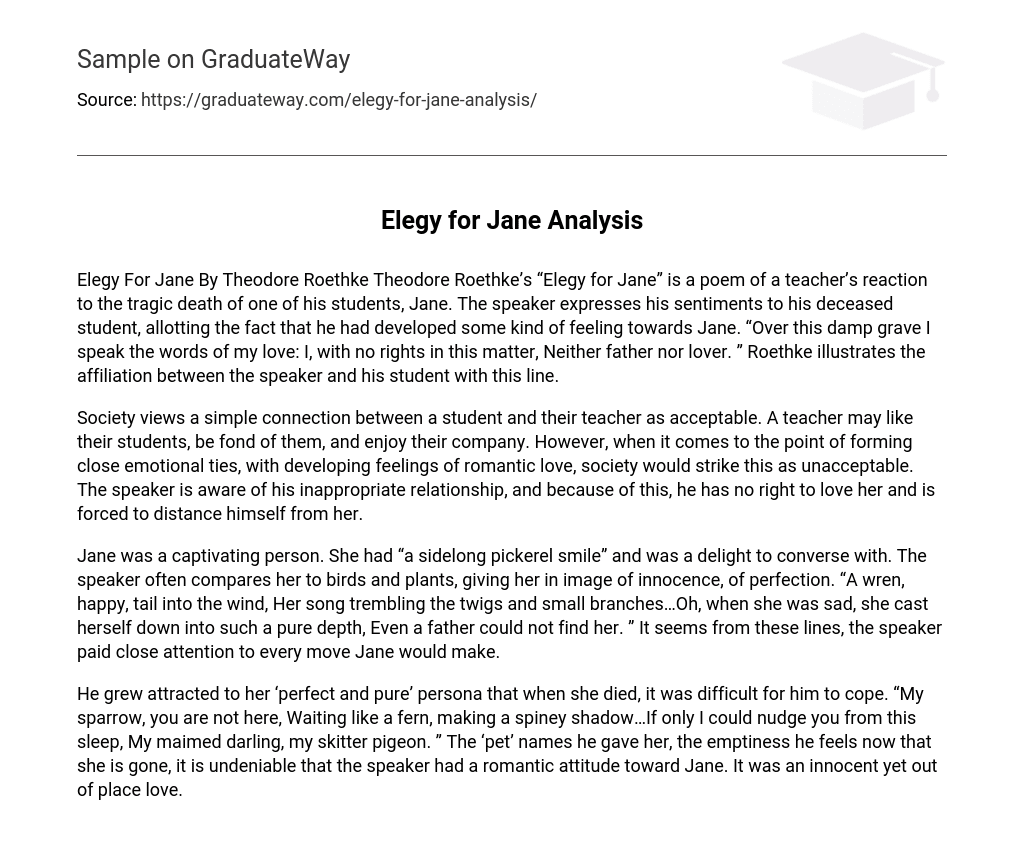Elegy For Jane By Theodore Roethke Theodore Roethke’s “Elegy for Jane” is a poem of a teacher’s reaction to the tragic death of one of his students, Jane. The speaker expresses his sentiments to his deceased student, allotting the fact that he had developed some kind of feeling towards Jane. “Over this damp grave I speak the words of my love: I, with no rights in this matter, Neither father nor lover. ” Roethke illustrates the affiliation between the speaker and his student with this line.
Society views a simple connection between a student and their teacher as acceptable. A teacher may like their students, be fond of them, and enjoy their company. However, when it comes to the point of forming close emotional ties, with developing feelings of romantic love, society would strike this as unacceptable. The speaker is aware of his inappropriate relationship, and because of this, he has no right to love her and is forced to distance himself from her.
Jane was a captivating person. She had “a sidelong pickerel smile” and was a delight to converse with. The speaker often compares her to birds and plants, giving her in image of innocence, of perfection. “A wren, happy, tail into the wind, Her song trembling the twigs and small branches…Oh, when she was sad, she cast herself down into such a pure depth, Even a father could not find her. ” It seems from these lines, the speaker paid close attention to every move Jane would make.
He grew attracted to her ‘perfect and pure’ persona that when she died, it was difficult for him to cope. “My sparrow, you are not here, Waiting like a fern, making a spiney shadow…If only I could nudge you from this sleep, My maimed darling, my skitter pigeon. ” The ‘pet’ names he gave her, the emptiness he feels now that she is gone, it is undeniable that the speaker had a romantic attitude toward Jane. It was an innocent yet out of place love.





